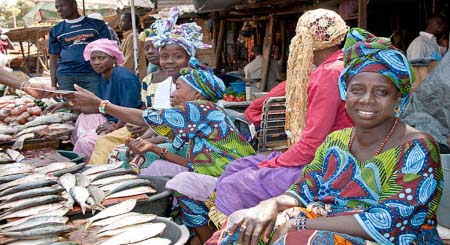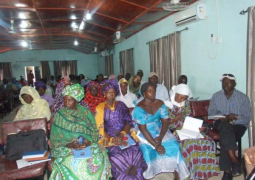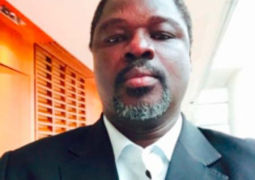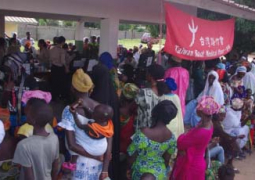
According to statistics, more than 51 of The Gambia’s population is women.
Based on this statistics, said Teneng Gitteh, a presenter at GRTS TV, empowering women means more than 51% of the country’s population is being empowered and “that will have a trickle-down effect on the rest of the population”.
“This makes the empowerment of women crucial in the efforts geared towards sustainable development,” she said, adding that the widespread traditional perception that women are “mere caregivers” at home as mothers and sisters” need to be changed.
“For us to achieve a more sustainable and developed country and world at large, women need to play their role play as partners with men; men alone cannot do it just like women cannot do it without them,” Ms Gitteh said.
“To fully utilise the potential that women have, we must be granted equal opportunity and access, and this includes making the work environment more women friendly and listening when women speak up,” she added.
Jama Jack, an activist, said when girls and women are given the opportunities they needed and the environment is conducive for them, they will thrive and everyone will benefit.
“The contributions of women in all aspects of society, regardless of the limitations faced, show that when these barriers are broken, a lot more can be achieved,” she said.
The young activist said empowering women today means empowering a new generation of young women and girls who are ready to take leadership in all spheres.
She said: “This translates to sustainability as we are creating generations of people who will steer the affairs of our nation and ensure that development occurs and is maintained.
“If we need to realize the targets for sustainable development, we need to ensure that women and girls are empowered to reach their full potentials.”
Fatoumatta Simaha, a reporter at the Gambia Radio and Television Service (GRTS), said the empowerment of women in decision-making process has the potential of improving the quality and sensitivity of the development-related decision taken.
She pointed out that there is a need for the development of specific strategies and mechanisms to promote the participation of women.
Women should be empowered to analyse and communicate their needs and concern and that can be done when women are given unhindered access to quality education, Mrs Simaha said.
Maria Saine, activist in the promotion and protection of the rights of the girls, said gender inequality, poverty and violence against women are the most pressing issues that need to be addressed for women to be empowered.
Read Other Articles In Article (Archive)

‘Enhancing food security would take national vision, local action’
Feb 27, 2017, 10:44 AM
‘Human right defenders, journalists continue to face threat’
Apr 28, 2011, 3:07 PM



